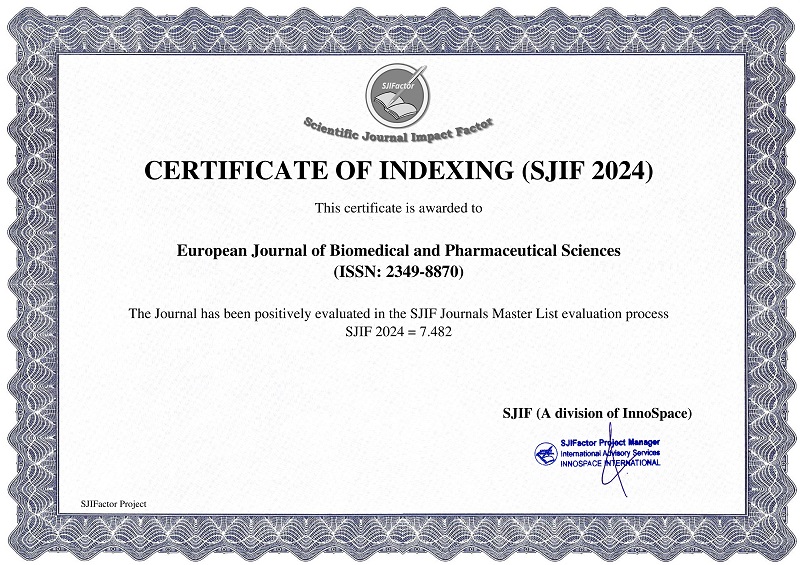LAPAROSCOPIC SLEEVE GASTRECTOMY IN SUPER-MORBIDLY OBESE
Mriganka Shekhar Sharma, Sandeep Malhotra, Anshuman Kaushal, *Dhruv Kundra, Rajesh Agarwal and Saurabh Garg
ABSTRACT
Introduction: Super-morbid obesity is defined as BMI (Body Mass Index) of more than 50 kg/m2. Conventionally bypass bariatric procedures have been advocated for super-morbid obese patients. We studied effects of Laparoscopic Sleeve Gastrectomy on these patients. Material and Methods: 59 Super-morbidly-obese patients who underwent Laparoscopic Sleeve Gastrectomy between May 2008 and April 2012 were followed up till 2018. Their data was entered into a prospective data base, and retrospective evaluation of the data base was carried out for various parameters. Results: Mean follow up was 73.2 months. Mean age of patients was 46.5 years. Mean BMI was 59.4 kg/m2. The mean BMI of these patients at 73.2 months was 32.17 kg/m2. The % EBWL (Excess Body Weight Loss) at 73.2 months was 61.1%. The % EBWL ranged from 40.7% to 103.6%. The remission rates for diabetes was 90%, for Hypertension was 87% & OSA (Obstructive Sleep Apnea) was 85.5%. Conclusion: Laparoscopic Sleeve Gastrectomy can be safely considered a standalone bariatric procedure for super-morbidly obese patients with good EBWL and remission of co-morbidities.
Keywords: Super-morbidly obese, BMI (Body Mass Index), EBWL (Excess Body Weight Loss). LSG (Laparoscopic Sleeve Gastrectomy).
[Full Text Article]
[Download Certificate]


 Impact Factor : 8.181
Impact Factor : 8.181 






